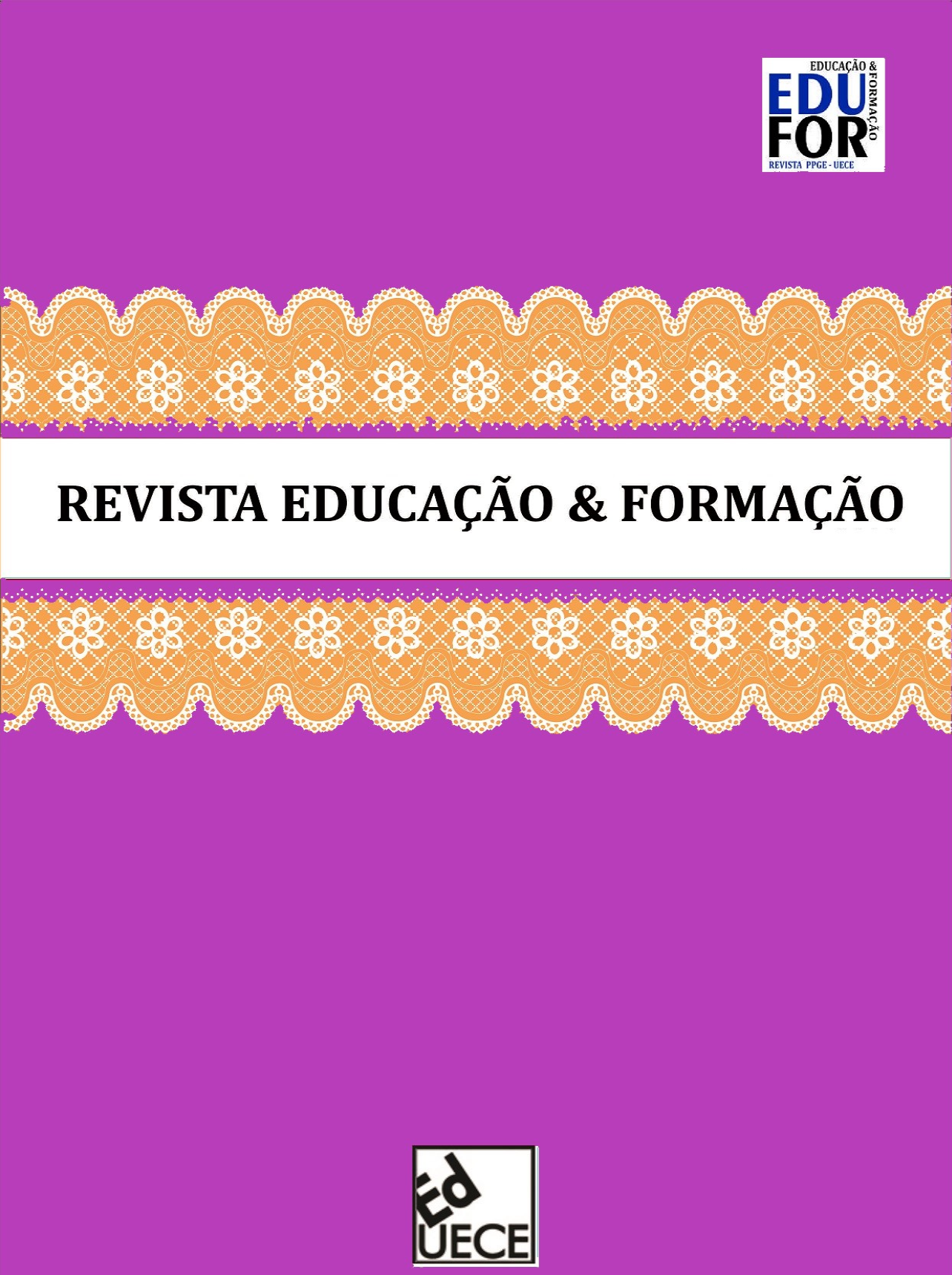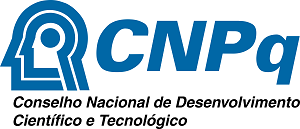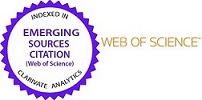Interesse, conhecimento e autoconfiança de futuros professores e professores em serviço no uso de robótica educacional em atividades de aprendizagem
DOI:
https://doi.org/10.25053/redufor.v6i1.3345Palavras-chave:
Formação Inicial de Professores, Programação, Pensamento Computacional, Rob´ótica Educacional, didática da informáticaResumo
Este artigo reporta os resultados de um estudo que procurou analisar os níveis de interesse, conhecimento, resolução de problemas e autoeficácia, dos professores em formação inicial e professores em exercício, na utilização de robótica educativa para ensinar programação e pensamento computacional na educação básica e secundária. Em Portugal, para ser professor é necessário a frequência de um mestrado em ensino. Este curso de formação inicial organiza-se em várias dimensões de formação, como sejam, didáticas específicas, educação geral, formação na área de docência e iniciação à prática profissional. As temáticas ligadas ao Pensamento Computacional, à programação e à robótica vêm sendo integradas nos currículos escolares em vários países. Assim, é importante analisar a preparação dos professores para ensinar estas temáticas. A investigação assumiu uma abordagem quantitativa de carácter descritivo e exploratório e envolveu 49 participantes, professores em formação inicial e professores em serviço. Os resultados evidenciaram níveis positivos de interesse, conhecimento, resolução de problemas e autoeficácia em ambos os grupos.
Downloads
Referências
ATMATZIDOU, S.; DEMETRIADIS, S. Advancing students’ computational thinking skills through educational robotics: A study on age and gender relevant differences. Robotics and Autonomous Systems, v. 75, p. 661-670, 2016. DOI: https://doi.org/10.1016/j.robot.2015.10.008
ATMATZIDOU, S.; DEMETRIADIS, S.; NIKA, P. How Does the Degree of Guidance Support Students’ Metacognitive and Problem-Solving Skills in Educational Robotics?. Journal of Science Education and Technology, v. 27, p. 70-85, 2018. DOI: https://doi.org/10.1007/s10956-017-9709-x
BANDURA, A. Self-efficacy: The exercise of control. New York: Freeman, 1997.
BELL, T.; TYMANN, P.; YEHUDAI, A. The Big Ideas in Computer Science for K-12 Curricula. European Association for Theoretical Computer Science, v. 124, p. 2-12, 2018.
BERLAND, M.; WILENSKY, U. Comparing Virtual and Physical Robotics Environments for Supporting Complex Systems and Computational Thinking. Journal of Science Education and Technology, v. 24, p. 628-647, 2015. DOI: http://doi.org/10.1007/s10956-015-9552-x
BERS, M. U. et al. Computational thinking and tinkering: Exploration of an early childhood robotics curriculum. Computers & Education, v. 72, n. 1, p. 145-157, 2014. DOI: https://doi.org/10.1016/j.compedu.2013.10.020
CARDOSO, A. C. Pro-tecnologia: uma abordagem de formação inicial de professores para o uso das tecnologias digitais. Educação & Formação, Fortaleza, v. 1, n. 3, p. 50-70, 2016. DOI: http://dx.doi.org/10.25053/edufor.v1i3.1890
CHALMERS, C. Robotics and computational thinking in primary school. International Journal of Child-Computer Interaction, v. 17, n. 1, p. 93-100, 2018. DOI: https://doi.org/10.1016/j.ijcci.2018.06.005
CRESWELL, J. W. A Concise Introduction to Mixed Methods Research. London: Sage, 2014.
DGE. Aprendizagens essenciais para da disciplina de TIC. Lisboa: Ministério da Educação de Portugal, 2017.
FIELD, A. Discovering Statistics Using SPSS. 3. ed. London: Sage, 2009.
FONSECA, M. G. R. As tecnologias de informação e comunicação na formação inicial de professores do 1º ciclo do ensino básico – Fatores constrangedores invocados pelos formadores para o uso das tecnologias. Educação & Formação, Fortaleza, v. 4, n. 11, p. 3-33, 2019. DOI: https://doi.org/10.25053/redufor.v4i11.254
FRANKLIN, D. et al. Using upper-elementary student performance to understand conceptual sequencing in a blocks-based curriculum. In ACM SIGCSE Technical Symposium Computer Science Education, 03, 2011. Anais… New York: ACM, 2017. p. 231-236. DOI: http://doi.org/10.1145/3017680.3017760
GARCÍA-PENÃLVO, F. J.; MENDES, A. J. Exploring the computational thinking effects in pre-university education. Computers in Human Behavior, v. 80, p. 407-411, 2018. DOI: https://doi.org/10.1016/j.chb.2017.12.005
GÜNBATAR, M. S. Computational thinking within the context of professional life: Change in CT skill from the viewpoint of teachers. Education and Information Technologies, v. 24, p. 2629-2652, 2019. DOI: http://doi.org/10.1007/s10639-019-09919-x
HSIAO, H.-S. et al. Using robot-based practices to develop an activity that incorporated the 6E model to improve elementary school students’ learning performances. Interactive Learning Environments, p. 1-15, 2019. DOI: https://doi.org/10.1080/10494820.2019.1636090
HUBWIESER, P.; ARMONI, M.; GIANNAKOS, M. How to implement rigorous computer science education in K-12 Schools? Some Answers and Many Questions. ACM Transactions on Computing Education, v. 15, n. 2, p. 1-12, 2015. DOI: http://doi.org/10.1145/2729983
JAIPAL-JAMANI, K.; ANGELI, C. Effect of Robotics on Elementary Preservice Teachers’ Self-Efficacy, Science Learning, and Computational Thinking. Journal of Science Education and Technology, v. 26, n. 2, p. 175-192, 2017. DOI: http://doi.org/10.1007/s10956-016-9663-z
JUŠKEVICIENE, A.; DAGIENE, V. Computational thinking relationship with digital competence. Informatics in Education, v. 17, n. 2, p. 265-284, 2018. DOI: http://doi.org/10.15388/infedu.2018.14
KAGIMA, L. K.; HAUSAFUS, C. Integration of electronic communication in higher education: Contributions of faculty computer self-efficacy. The Internet and Higher Education, v. 2, n. 2, p. 221-235, 2000. DOI: https://doi.org/10.1016/S1096-7516(00)00027-0
LEONARD, J. et al. Preparing teachers to engage rural students in computational thinking through robotics, game design, and culturally responsive teaching. Journal of Teacher Education, v. 69, n. 4, p. 386-407, 2018. DOI: https://doi.org/10.1177/0022487117732317
LEONARD, J. et al. Using robotics and game design to enhance children’s self-efficacy, stem attitudes, and computational thinking skills. Journal of Science Education and Technology, v. 25, p. 860-876, 2016. DOI: http://doi.org/10.1007/s10956-016-9628-2
LUDI, S.; REICHLMAYR, T. The use of robotics to promote computing to pre-college students with visual impairments. ACM Transactions on Computing Education, v. 11, n. 3, p. 1-20, 2011. DOI: https://doi.org/10.1145/2037276.2037284
MÂROCO, J. Análise estatística com SPSS Statistics. 7. ed. Venda do Pinheiro: ReporNumber, 2018.
NOH, J.; LEE, J. Effects of robotics programming on the computational thinking and creativity of elementary school students. Education Tech Research Dev, v. 68, p. 463-484, 2020. DOI: http://doi.org/10.1007/s11423-019-09708-w
PEDRO, N.; PIEDADE, J. Efeitos da formação na autoeficácia e na utilização educativa das TIC pelos professores: estudo das diferenças entre regimes formais e informais de formação. Revista e-curriculum, São Paulo, v. 11, n. 3, p. 766-793, 2013.
PIEDADE, J. et al. A Cross-analysis of block-based and visual programming apps with computer science student-teachers. Education Sciences, v. 9, n. 181, p. 1-19, 2019. DOI: http://doi.org/10.3390/educsci9030181.
PIEDADE, J.; PEDRO; N. Tecnologias digitais na gestão escolar: práticas, proficiência e necessidades de formação dos diretores escolares em Portugal. Revista Portuguesa de Educação, Braga, v. 27, n. 2, p. 109-133, 2014. DOI: https://doi.org/10.21814/rpe.6254
SÁEZ-LÓPEZ, J.-M.; ROMÁN-GONZÁLEZ, M.; VÁZQUEZ-CANO, E. Visual programming languages integrated across the curriculum in elementary school: A two-year study using “Scratch” in five schools. Computers & Education, v.97, p.129–141, 2016. DOI: https://doi.org/10.1016/j.compedu.2016.03.003
SMYLIE, M. A. The enhancement function of staff development: organizational and psychological antecedents to individual teacher change. American Educational Research Journal, v. 25, n. 1, p. 1-30, 1998.
SCHWARZER, R.; SCHMITZ, G. S. Perceived self-efficacy as a resource factor in teachers. In: SALANOVA, M. et al. (Ed.). Nuevos horizontes en la investigacíon sobre la autoeficacia. Castelló de la Plana: Universitat Jaume I, 2004. p. 229-236.
TAYLOR, K.; BAEK, Y. Grouping matters in computational robotic activities. Computers in Human Behavior, v. 93, p. 99-105, 2019. DOI: https://doi.org/10.1016/j.chb.2018.12.010
TRAN, Y. Computational Thinking equity in elementary classrooms: what third-grade students know and can do. Journal of Educational Computing Research, v. 57, n. 1, p. 3-31, 2019. DOI: http://doi.org/10.1177/0735633117743918
TSCHANNEN-MORAN, M.; WOOLFOLK HOY, A.; HOY, W. K. Teacher efficacy: it's meaning and measure. Review of Educational Research, v. 68, n. 2, p. 202-248, 1998. DOI: https://doi.org/10.3102/00346543068002202
TSCHANNEN-MORAN, M.; WOOLFOLK HOY, A. The differential antecedents of self-efficacy beliefs of novice and experienced teachers. Teaching and Teacher Education, v. 23, p. 944-956, 2007. DOI: https://doi.org/10.1016/j.tate.2006.05.003
TUCKMAN, B. W. Manual de Investigação em Educação. 4. ed. Lisboa: Fundação Calouste Gulbenkian, 2012.
WILSON, A.; MOFFAT, D. C. Evaluating Scratch to introduce younger schoolchildren to programming. PPIG, v. 1, n. 1, p. 1-12,2010.
WITHERSPOON, E. B. et al. Developing Computational Thinking through a Virtual Robotics Programming Curriculum. ACM Transactions on Computing Education, v. 18, n. 1, p. 1-20, 2017. DOI: http://doi.org/10.1145/3104982
Publicado
Como Citar
Edição
Seção
Licença
Copyright (c) 2021 João Manuel Nunes Piedade

Este trabalho está licenciado sob uma licença Creative Commons Attribution 4.0 International License.
Os autores possuem direitos autorais dos seus textos:
A revista Educação & Formação permite ao autor os direitos de publicação, no entanto, recomenda um intervalo de dois anos para o caso de republicação.
Os nomes e endereços informados nesta revista serão usados exclusivamente para os serviços prestados por esta publicação, não sendo disponibilizados para outras finalidades ou a terceiros.























